
When considering financial products like loans, understanding repayment structures, particularly monthly instalments, is vital. Whether you’re taking out a short-term loan for an emergency or a long-term mortgage, instalment loans are a popular choice for many South African consumers. These loans allow you to borrow a specific amount and repay it over time through regular, structured payments.
Key Takeaways
- Structured repayments: Instalment loans provide borrowers with a clear repayment plan, dividing the loan into fixed payments over an agreed term, which makes budgeting more predictable.
- Credit considerations: While timely payments on instalment loans can enhance your credit score, missed payments or hard credit checks may have a negative impact. However, some loans, such as Buy Now, Pay Later, may not require credit checks at all.
- Variety of options: South African consumers can choose from a range of instalment loans, including personal loans, mortgages, and auto loans, with both secured and unsecured options available to meet different financial needs.
How Does An Instalment Loan Work?
An instalment loan allows you to borrow a predetermined amount of money as a single payment. The repayment of this loan is structured over a specific duration, which can range from a few weeks for short-term loans, such as payday loans or Buy Now, Pay Later (BNPL) options, to as long as 30 years for loans like mortgages.
Typically, these loans come with a fixed interest rate and require regular payments, which can be made weekly, bi-weekly, or monthly, depending on the agreed terms.
For monthly instalment loans, each payment is divided between the principal amount borrowed and the interest charged on the loan. Payments continue until the entire loan, including both the principal and the interest, is fully repaid. Once this occurs, the lender will close the loan account.
Discover How Many Months You Have to Work for a Personal Loan and prepare yourself for a smoother approval process.

Do Instalment Loans Affect Your Credit?
Taking out an instalment loan can impact your credit, particularly if you miss a payment or undergo a hard credit check during the application process. It is advisable to consider lenders who allow prequalification without a credit pull, which can help you gauge your eligibility without affecting your score. When you proceed with the formal application, a hard inquiry will occur, but the impact on your score is generally minimal and short-lived.
Late payments can be more detrimental to your credit score than credit inquiries, so it is essential to keep your payments current. To avoid the risk of missing a payment, setting up automatic payments is a helpful solution that ensures you never miss a due date and maintain a positive payment history.
Some instalment loans may not affect your credit score at all. For example, buy now, pay later financing options often do not require a credit check, and the payments might not be reported to credit bureaus, meaning these loans are unlikely to impact your credit score.
Loans with straightforward instalment plans make repayment stress-free. Many of the Easiest Personal Loans to Get in South Africa offer predictable monthly payments, helping borrowers stay on track without surprises.
About Arcadia Finance
Get the loan you need with Arcadia Finance, stress-free and simple. With no application fees and 19 reliable lenders to choose from, each compliant with South Africa’s National Credit Regulator, you’re in good hands for a smooth borrowing experience.
Types of Instalment Loans
There are several common types of instalment loans available for South African consumers:
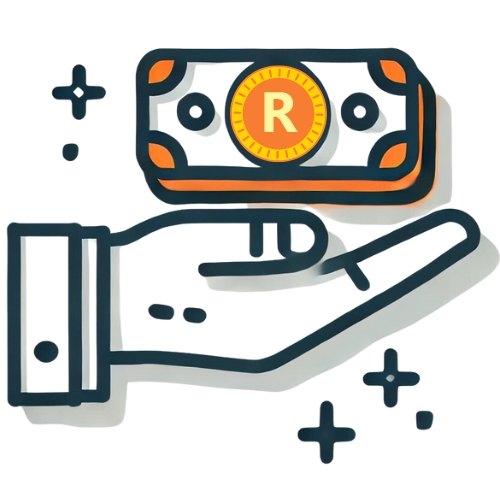
Personal Loans: These loans provide funding for nearly any legitimate financial need, unless specifically restricted by the loan agreement. Common uses include debt consolidation, emergency repairs, large purchases, or special events like weddings.
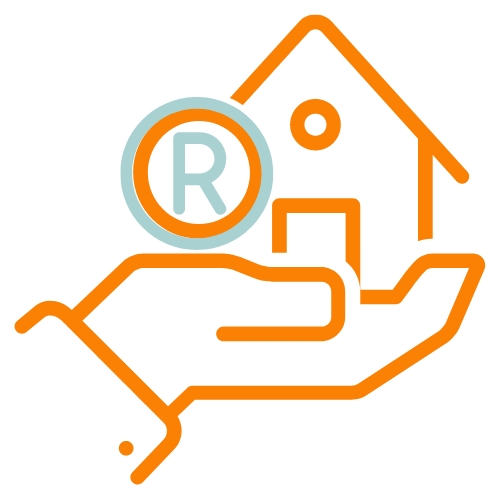
Mortgages: This type of loan is designed specifically for purchasing property. A mortgage is secured against the home being bought, which serves as collateral for the loan. Mortgages are typically obtained from banks, credit unions, or online lenders.
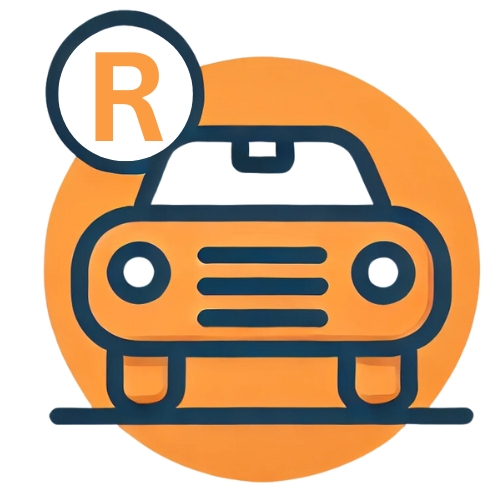
Auto Loans: Tailored for vehicle purchases, an auto loan allows you to finance a car and repay it in instalments. These loans are offered through car dealerships, banks, credit unions, and online lending platforms.
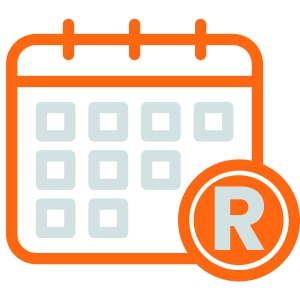
Payday Loans: Aimed at providing short-term financial solutions for emergencies, payday loans typically come with high interest rates. They are often used by individuals with poor credit histories, as they offer access to funds when other borrowing options may not be available.

Student Loans: These loans are intended to cover the costs of higher education. Students can access funding through private lenders or government-backed loans.

Buy Now, Pay Later Loans: Commonly provided by retailers, these loans allow consumers to split large purchases into manageable payments. Typically, there are no interest charges or fees associated with these loans, making them an attractive option for immediate purchases.
You can access these instalment loans through various institutions such as banks, credit unions, online lenders, mortgage brokers, and car dealerships. These loans can be either secured, requiring collateral, or unsecured, where no collateral is needed.
Understanding the basic facts about loans can provide clarity on how loan instalments work, from interest rates to repayment structures. Equip yourself with the right knowledge to make informed decisions.

Secured Loans vs. Unsecured Instalment Loans
A secured loan involves the borrower providing an asset, such as a home or car, as security for the loan. If repayment cannot be made, the lender has the legal right to claim the asset to cover the remaining balance owed. Common examples of secured loans include mortgages and vehicle finance.
In contrast, an unsecured instalment loan does not require the borrower to provide any form of collateral. The approval process is generally more straightforward, relying on factors such as credit score, income, and existing debts rather than the need to pledge an asset.
Examples of unsecured instalment loans include personal loans and Buy Now, Pay Later (BNPL) options. These loans do not involve providing collateral, and unsecured personal loans may be approved and funded quickly, sometimes even on the same day the agreement is signed.
The type of loan you choose, secured or unsecured, can significantly influence your monthly instalments. Find out which option suits your needs best.
Is an Instalment Loan Right for You?
Choosing an instalment loan can be a reasonable option if you are confident in your ability to manage repayments, maintain financial stability, and derive some tangible benefits from the loan. However, keep in mind that such loans require a commitment that can extend for up to 30 years. If you anticipate changes in employment or fluctuations in your income, this type of loan may not be the most suitable choice.
To determine if an instalment loan aligns with your circumstances, it’s advisable to compare offers from various loan providers. Loan comparison websites can help you view multiple options side by side. For those purchasing property, consulting a mortgage broker can provide insights into various lender programmes that may suit your needs.
If, after careful consideration, you conclude that an instalment loan is not appropriate for you, it’s worth exploring alternatives. These may include options such as personal lines of credit, credit cards, or home equity lines of credit.
Not all instalment plans come with interest! Discover how interest-free instalments could save you money and why they might be an attractive alternative for certain purchases.
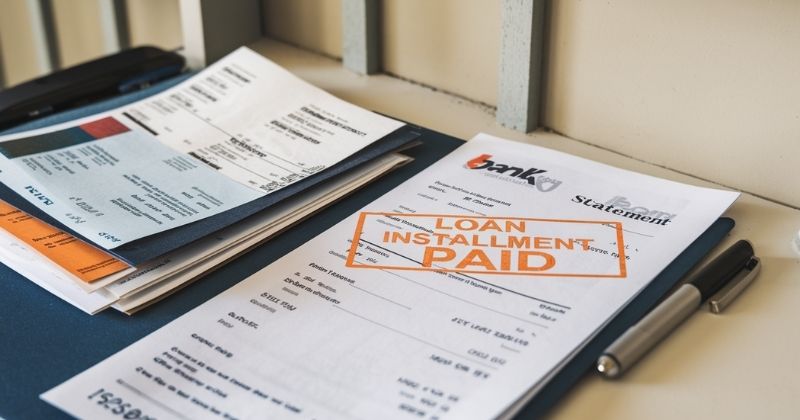
Advantages and Disadvantages of Instalment Loans
Instalment loans can help spread the cost of significant purchases over time, making them more manageable. However, it’s essential to carefully compare the advantages and disadvantages with other financing options to determine the most suitable choice for your financial goals.
Advantages
- Allows you to pay off a large purchase gradually, which can ease immediate financial pressure.
- Fixed-rate instalment loans offer consistent, predictable payments, making budgeting easier.
- Making payments on time can contribute to improving your credit score.
- There may be an option to refinance the loan, potentially securing better terms or interest rates.
Disadvantages
- Once the loan is secured, it can be difficult to access additional funds without applying for a new loan.
- High interest rates may apply, particularly if your credit score is not strong.
- Failing to make payments on time could negatively affect your credit score, leading to long-term financial consequences.
- Long repayment periods may result in paying a significant amount in interest over time, increasing the overall cost.
How To Obtain an Instalment Loan
Review Your Credit Status
Individuals with higher credit ratings are more likely to be eligible for instalment loans and can access better interest rates. Carefully examine your credit report and address any discrepancies that may negatively impact your credit score. If you are not in a rush to apply, consider taking steps to improve your credit standing beforehand.
Compare Your Options
Each lender has its own criteria for evaluating loan applications and determining interest rates, making it beneficial to compare multiple lenders when seeking an instalment loan. It’s also worth exploring other financing options, such as low-interest credit cards or credit lines, especially for significant purchases.
Pre-qualify or Seek Preapproval
By pre-qualifying for personal loans or student loans, or getting preapproved for mortgages or auto loans, you can obtain an estimate of your potential loan amount, interest rate, and monthly payments. This information helps you determine how the loan will impact your budget. Pre-qualification usually doesn’t affect your credit score, but preapproval may involve a hard credit check that can temporarily lower your score.
Strengthen Your Application
Before submitting a formal application, consider using a joint or co-signed loan, or securing an unsecured loan with collateral. These steps can help you qualify for the loan or secure a lower interest rate. However, be mindful of the potential risks: a co-signer becomes responsible if you cannot repay, and your collateral may be forfeited if you default.
Submit Your Application
When you submit your formal application, the lender will perform a hard credit inquiry if it hasn’t already been done. The time frame for approval and receiving funds will vary depending on the type of loan and the lender.
Obtaining an Instalment Loan with Poor Credit History
Individuals with a limited or less-than-ideal credit history may still have access to instalment loans despite their poor credit standing.
Some lenders adopt more lenient criteria when assessing applications, placing less emphasis on credit scores and considering additional factors such as banking activity, current employment status, educational background, and existing financial obligations. Credit unions and various online lenders are often more willing to offer financing to individuals with low credit ratings, while traditional banks typically require applicants to have a strong or exceptional credit score for approval. Track your credit score on platforms like Experian to improve your loan prospects.
Conclusion
Instalment loans provide a structured and manageable way for South African borrowers to finance significant purchases or consolidate debt. With a range of options available, from personal loans to mortgages, these loans cater to both short-term needs and long-term financial goals. However, it’s essential to understand the repayment terms, the potential impact on your credit score, and whether the loan is secured or unsecured. By carefully assessing your financial situation and comparing different lenders, you can make informed decisions that align with your budget and promote responsible borrowing.
Frequently Asked Questions
An instalment loan is a type of loan where you borrow a fixed amount of money and repay it in regular, scheduled payments over a set period. Each payment typically includes both the loan principal and interest.
Monthly instalment payments are calculated based on the loan amount, interest rate, and loan term. Payments consist of two parts: the principal, which reduces the outstanding balance, and the interest, which is the cost of borrowing.
Yes, some lenders offer instalment loans to individuals with bad credit. They may consider additional factors, such as employment, income, and existing debts. However, these loans may come with higher interest rates.
Instalment loans can affect your credit score in both positive and negative ways. Making timely payments can boost your credit score, while missed payments or defaults can harm it. Furthermore, a hard credit inquiry during the application process may lead to a temporary decrease in your score.
Common instalment loans in South Africa include personal loans, mortgages, auto loans, student loans, and Buy Now, Pay Later options. These loans can be secured, requiring collateral, or unsecured, which do not require any assets to back the loan.




